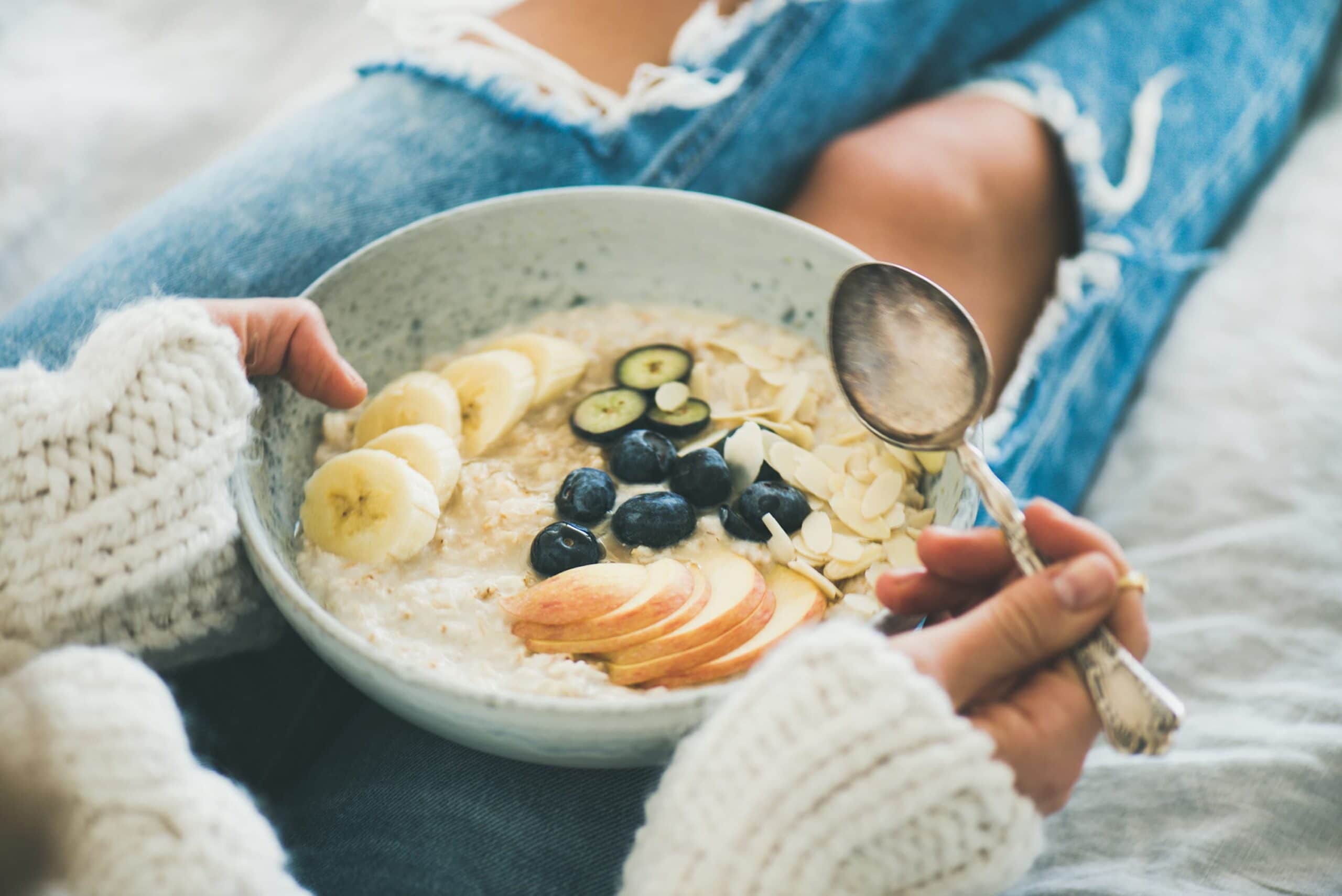If you’re looking to live a healthier lifestyle, breakfast is a good place to start. It’s the first meal of the day, which means it can often set the tone for how and what you eat later in the afternoon.
That said, most of us live busy lives and – no matter what health bloggers on Instagram might portray – plating up a gourmet breakfast every morning isn’t always realistic. Not only are we often short of time, but plenty of trendy breakfast ‘health’ foods like chia seeds, avocado and nuts are expensive to eat day-in day-out.
Thankfully, you can still have a healthy, satisfying breakfast without breaking the bank or slaving away at the stove.
“Breakfast can be a great opportunity to get in one or two portions of fruit or vegetables, and making some simple swaps can improve the nutritional quality of your breakfast significantly,” says Sophie Medlin, consultant dietician and director of CityDieticians (citydietitians.co.uk).
Here, she shares a handful of simple changes that can supercharge your early morning routine…
1. Instead of a big bowl of cereal, try a low-fat greek yogurt with some frozen berries and a handful of cereal
Cereal with a splash of milk is one of the most convenient breakfast options going, but some types can be loaded with hidden sugars, and Medlin believes it might not be the right nutritional balance for your morning.
“Most of us do sedentary jobs, meaning we sit down for most of the day, so having a big bowl of energy from carbohydrates in the morning may be more than you really need,” she says.
Instead of loading up your bowl with tonnes of cereal, why not add some other foods into the mix? “Yogurt, for example, gives plenty of protein which will help to keep you fuller for longer over the morning, as well as giving you lots of essential nutrients like calcium and B vitamins.”
Medlin also suggests buying frozen berries (rather than fresh) as a cheaper way to get some extra vitamins and fibre into your brekkie. “The nutrients in blueberries, in particular, have even been shown to boost mental performance,” she notes.
2. Bulk out pancakes with bananas
Lots of people enjoy pancakes for a weekend breakfast, but Medlin has a sneaky trick for making your breakfast stack more nutritious.
“Replacing the flour with mashed banana will give you a fibre boost and add some additional vitamins that you don’t find in plain flour,” she says. “Top your pancakes with yogurt, berries and some chopped nuts, and you have a delicious, high-fibre, high-protein and nutrient-rich start to the day.”
3. Make your own granola bars
Many of us prefer to have breakfast when we get to work or while we’re commuting, making grab-on-the-go options tempting.
“Picking up protein bars or balls can turn into an expensive habit though,” warns Medlin, “and they’re still processed foods, regardless of their ‘natural’ labels.”
“Making your own versions is really easy and you can control how much sugar and added extras you want to include,” she explains. It might take a bit of prep, but it’s the perfect Sunday afternoon project to take on with the kids. You can find lots of healthy recipe ideas on Pinterest and YouTube.
4. Include some oily fish
Smoked salmon is a breakfast staple for many, but there are lots of other types of fish – and more affordable ones – that can give you a good start to the day.
“Oily fish like mackerel is such a great source of protein and the essential fatty acids are vital for your heart and brain health,” says Medlin. “Try smoked mackerel fillets with your eggs instead of bacon, or have them with some spinach and tomatoes for a super healthy breakfast.”
5. Swap pork sausages for chicken sausages
Who doesn’t love a sausage sarnie on a Sunday morning? If you want to cut down on pork fat though, try making this simple change. “Chicken sausages are far leaner than pork sausages,” says Medlin.
Chicken sausages are available in most supermarkets, such as Heck’s Chicken Italia Sausages (£3.15 for 10, tesco.com)
Medlin says swapping your bangers for chicken and choosing a wholegrain bread makes for a high-protein start to the day, featuring lots of fibre too, which is important for digestive health.





